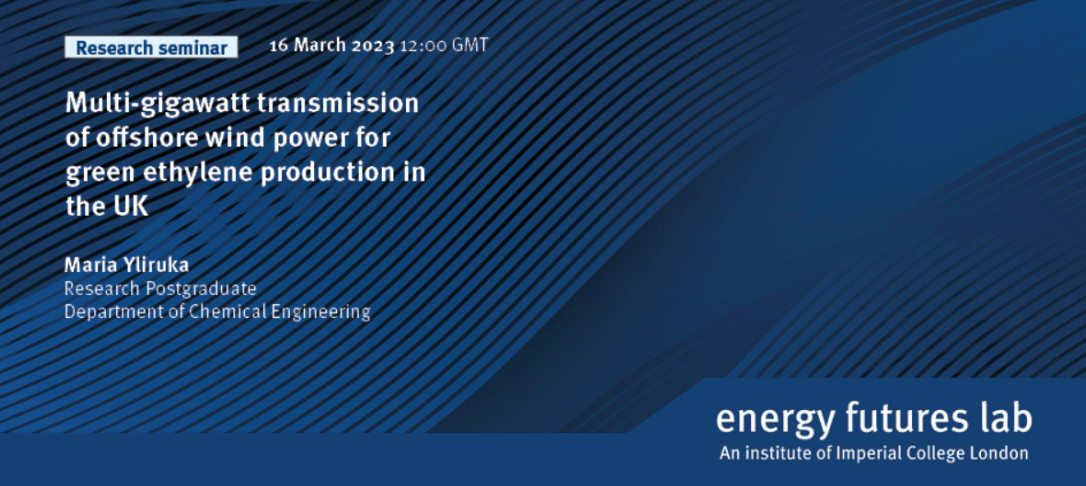
Bookings have now closed – click here to watch the livestream
Multi-gigawatt transmission of offshore wind power for green ethylene production in the UK
Ethylene is an essential chemical commodity with numerous downstream applications such as polystyrene used for home insulation or polyvinylchoride used for pipelines. In Europe, 21.7 Mt ethylene are produced annually via steam cracking of naphtha making it one of the largest contributors to the overall CO2 emissions generated by the chemical industry. The decarbonisation of ethylene production is complicated by the reliance on fossil fuels as a feedstock. CO2 captured from air could replace the fossil-derived carbon and fuelled by renewable electricity result in green ethylene. The historical location close to the North Sea coastline gives ethylene production facilities in the UK immediate access to large capacities of offshore wind power. But, how does the energy get to shore? And how might the least-cost transport mode change with increasing distance and capacity?
The presentation will first discuss different CO2 utilisation processes for ethylene production before comparing their respective ethylene production cost in a fully renewable energy system. The intermittency and seasonal variation of offshore wind power can be balanced using lithium-ion batteries, geological hydrogen storage and ethylene tanks. In this context of green ethylene production, the large-scale transmission of renewable power or green hydrogen to shore will be discussed. Going beyond the common reduction of transmission costs to simply cable or pipeline cost, we will take a closer look on the procedure and cost associated with the installation of offshore transmission infrastructure. Finally, based on a cost breakdown analysis, we will discuss the future cost reduction potential for green ethylene production.
Biography:
Maria Yliruka is a PhD student at the Department of Chemical Engineering, supervised by Prof. Nilay Shah. Her research focuses on the impact of spatial resolution in energy systems modelling and is part of the interdepartmental IDLES Programme. After having a developed a methodology to compare the impact of spatial resolution and uncertain input parameters on cost-optimal investment strategies, she now focuses on the impact of network cost on the cost-optimal decarbonisation strategy for the energy-intensive industry. Before attending Imperial College London, she obtained her Bachelor’s and Master’s degree in chemical and bioengineering from ETH Zurich.
About Energy Futures Lab
Energy Futures Lab is one of seven Global Institutes at Imperial College London. The institute was established to address global energy challenges by identifying and leading new opportunities to serve industry, government and society at large through high quality research, evidence and advocacy for positive change. The institute aims to promote energy innovation and advance systemic solutions for a sustainable energy future by bringing together the science, engineering and policy expertise at Imperial and fostering collaboration with a wide variety of external partners.